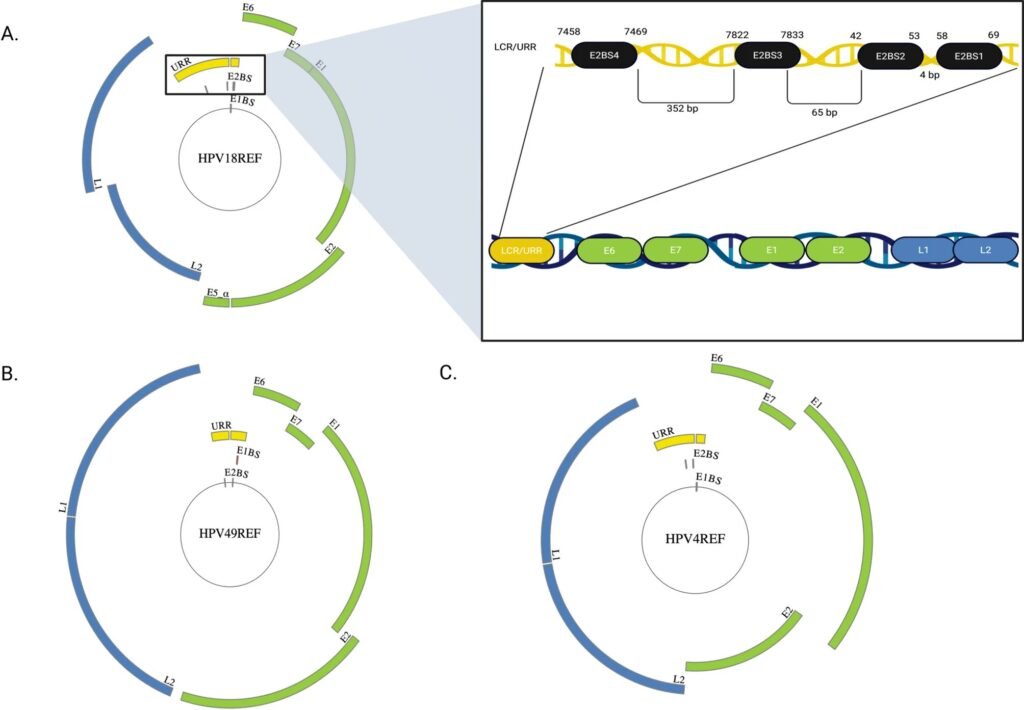Undergraduate Researcher Discovers New Insights into HPV’s Molecular Functions
When Sean Fletcher first joined Sam Biswas’ Medical and Molecular Sciences (MMSC) lab at the University of Delaware College of Health Sciences as a freshman, he had no prior research or laboratory experience. Fast forward two years, and the senior honors medical diagnostics major has made a significant impact by publishing a paper as a first author, shedding new light on how human papillomavirus (HPV) operates on a molecular level.
Biswas took a chance on Fletcher and brought him into the lab to work on a computational biology approach to HPV research. This unconventional approach led to a deeper understanding of the virus’s mechanisms. Fletcher’s work was made possible by the Angela Santoro ’05 Research Award, which provides full-time summer research opportunities for UD-MMSC undergraduates. Supported by this award, Fletcher dedicated himself to lab research, ultimately laying the groundwork for his first-author publication.
In a recent study published in the prestigious Virology Journal, Fletcher, along with co-authors Biswas and Esther Biswas-Fiss, used bioinformatics to identify conserved regions of the HPV E2 protein. This protein plays a crucial role in the virus’s ability to replicate and cause cancer. The team discovered that specific mutations in the protein could alter its function, significantly increasing the risk of cancer.
Being a first author in a respected journal like Virology Journal is a rare achievement for an undergraduate student and sets Fletcher apart in the field. The implications of his research on HPV, a global health concern, and potential treatments are significant.
Fletcher, a first-generation college student from Delaware with aspirations of attending medical school, expressed gratitude for the research opportunities at UD that allowed him to delve into HPV research. Following the publication of his paper, Fletcher received a call from Thomas Jefferson’s Sidney Kimmel Medical College for an interview, showcasing the value of his published work.
HPV is a complex virus with over 200 strains, making it the most common sexually transmitted infection globally. It is also the leading cause of head and neck cancer. Despite efforts to understand the virus, many aspects of its behavior remain unknown. Fletcher’s research has contributed to decoding HPV’s cancer-causing proteins, paving the way for new avenues of exploration in the field.
Moving forward, Fletcher plans to continue using computational biology to delve deeper into HPV proteins. His research, supported by the Delaware INBRE Academic Year Undergraduate Fellows Award, aims to uncover hidden patterns in proteins and explore ways to prevent them from causing cancer. This data-driven approach holds promise for future applications in medicine and clinical data analysis.
The collaborative work of Fletcher, Biswas, and Biswas-Fiss highlights the importance of understanding HPV on a molecular level to prevent and treat the virus effectively. By combining computational analysis with laboratory research, they have made significant progress in unraveling the mysteries of HPV and its implications for cancer.
This groundbreaking research not only showcases the power of undergraduate involvement in scientific discovery but also underscores the potential for young researchers like Fletcher to make meaningful contributions to the field. As Fletcher continues his academic journey, his innovative approach to HPV research serves as a beacon of hope for advancing our understanding of this prevalent virus.


